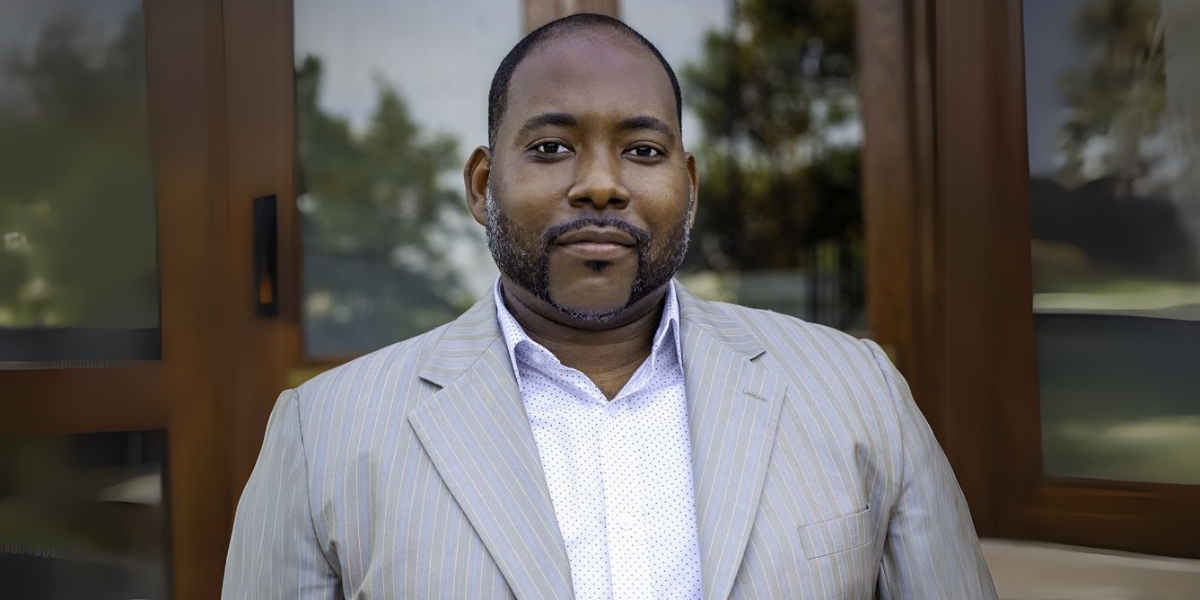By: Ethan Rogers
Jeremy Stennett is an innovative entrepreneur who often uncovers connections between industries that others might consider worlds apart. From advertising and music to retail and now wealth strategy, Stennett’s journey illustrates his core belief: certain foundational principles can contribute to success across industries.
Rather than being limited by the ‘jack of all trades’ label, Stennett has used his diverse experiences to build adaptable business strategies. His career spans working with Fortune 500 brands, managing retail operations, and now advising small businesses on wealth-building strategies that often extend beyond traditional investments. His mission? Supporting emerging entrepreneurs and small businesses in protecting, leveraging, and growing their assets through intellectual property and tangible investments.
Stennett’s journey started when he decided to pursue a bachelor’s degree in Communications with a concentration in advertising, and over time, he gained decades of practical experience working with brands in multiple industries. This multidisciplinary background helped him develop a nuanced understanding of consumer behavior and the product creation process. His early career included collaborations with some of the most recognized brands.
His ability to navigate multiple industries was shaped by his experience in brand media strategy and management. Moving from agency work to overseeing a family-owned retail business, he applied advertising strategies to various industries, from faith-based organizations, fashion & beauty, and music & film to real estate, culinary, and manufacturing. Through it all, he observed a recurring theme: success in any industry often relies on a set of shared principles.
“There’s nothing new under the sun,” Stennett often says. “The core principles, regardless of the industry, tend to remain the same. When you understand how patterns and systems work, you may be able to leverage money, branding, and asset protection to build something that lasts.”
While working with major corporations and family-owned businesses, Stennett noticed a common challenge—small brands and independent entrepreneurs often lacked access to the same strategic resources as large corporations. This realization led him to wealth strategy, where he now aims to help individuals and businesses protect their assets and work toward sustainable financial growth.
Unlike many traditional wealth advisors who focus primarily on stocks and bonds, Stennett emphasizes tangible assets. He educates businesses on how to safeguard and monetize intellectual property—through trademarks, copyrights, and patents—while also exploring real estate and licensing models to build long-term wealth. “Wealth isn’t just about having money,” he explains. “It’s about creating something that can generate income long-term without constant rework. That’s where asset protection and strategic business structuring can play a key role.”
Through his Wall Street business advisory firm, WasemeStennett, he provides a comprehensive approach to consulting on legal compliance, asset protection, HR compliance, communications, business growth, and intellectual property. This approach is particularly valuable for small businesses, including those in developing markets like his homeland, Jamaica, as they work to scale sustainably.
Stennett’s passion for empowering small businesses worldwide has inspired him to travel to regions where entrepreneurs frequently face challenges accessing funding and resources. His approach focuses on teaching business owners how to scale more efficiently—moving beyond incremental growth to more strategic expansion.
One notable example of his work occurred in Paris, where he led a workshop on intellectual property for entrepreneurs, business leaders, and lawyers. While there, he met a single mother who had transformed an old horse stable into a thriving vacation rental space. Seeing the potential for expansion, Stennett advised her to scale her business by exploring larger funding options rather than relying solely on small investments to complete her development project.
“Because she had proof of concept and existing income, she could consider leveraging that to secure additional funding and develop all the units at once, rather than building one at a time,” he recalls. “That’s the potential of strategic wealth planning—understanding how to grow efficiently, not just incrementally.” This philosophy is what Stennett applies to help clients pursue financial independence, focusing on sustainable, long-term value.
Disclaimer: The information provided in this article is for general informational purposes only and does not constitute financial, legal, or investment advice. Readers should conduct their own research and consult with qualified professionals before making decisions related to wealth strategy, asset protection, or business development. The views expressed are those of the featured individual and do not necessarily reflect those of the publisher.
Published by Jeremy S.









